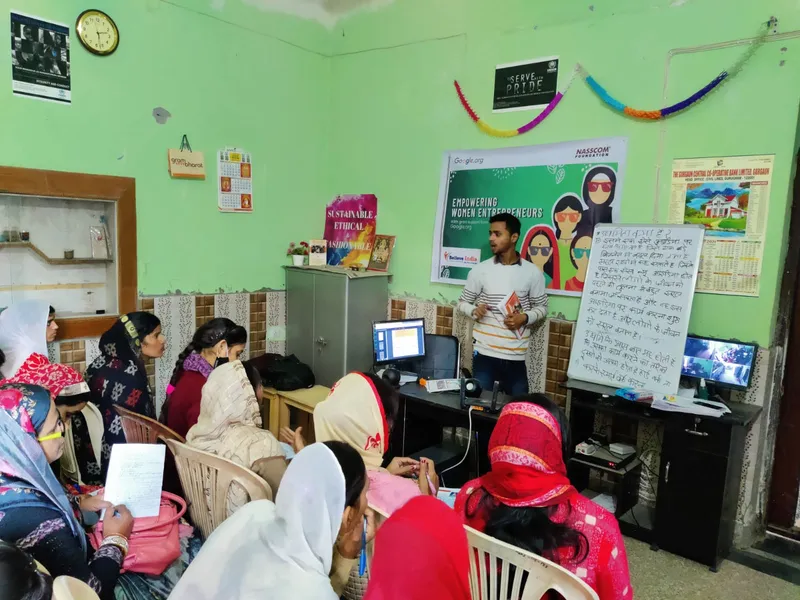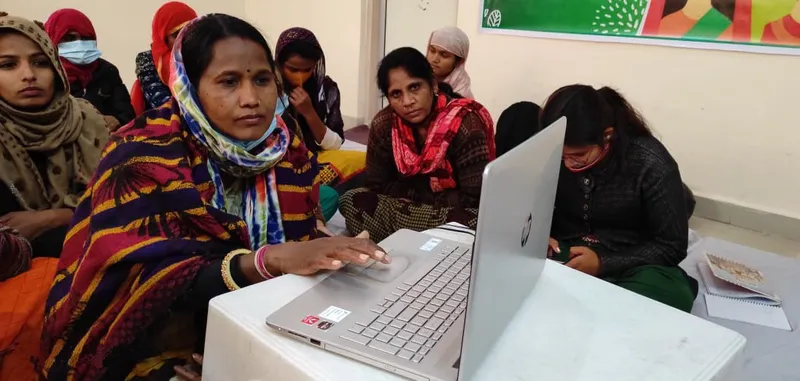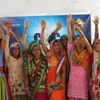Women empowerment, inclusion fundamental to NASSCOM Foundation’s programmes
Nidhi Bhasin, CEO of NASSCOM Foundation, discussed using technology for good, how women empowerment and inclusion are at the fundamental core of the foundation, and the way CSR powers business.
Despite one of the world’s fastest-growing economies, more than a quarter of India’s population lives in poverty. According to NITI Aayog, one in four Indians can be classified as ‘poor’ — unable to meet basic needs like access to housing, food, and drinking water.
According to the CMIE report, the COVID-19 outbreak further exacerbated this situation, and an additional 150 to 199 million people were expected to fall below the poverty line in 2021, with nearly seven million people losing their jobs in a year.
In this time of need, social entrepreneurs were able to act as first responders because of their close awareness of the communities at the grassroots level.
“The pandemic has been a pivot point for all of us. What has emerged clearer than ever before is that technology will be the differentiator and also the catalyst,” says Nidhi Bhasin, Chief Executive Officer, NASSCOM Foundation (Foundation).

NASSCOM Foundation focuses on three key areas: digital literacy, skilling, and employability
and entrepreneurship for women.
Founded in 2001, the Foundation—a part of the NASSCOM ecosystem—helps people and institutions transform the way they tackle social and economic challenges through technology.
“These could be social enterprises, the tech industry, the government, or other for-profit enterprises. Our job is to bring the tech ecosystem together to engineer social impact,” says Nidhi in an interview with SocialStory.
During the COVID-19 pandemic, the Foundation impacted about 5.1 million people through vaccinations, hospital setups, provisions, and other lifesaving medical emergency equipment.
However, several of its programmes were adversely impacted, and women’s businesses were among the worst hit.
“We saw what technology could potentially achieve. According to industry reports, India is expected to be home to over 150 unicorns by 2025. This allows boosting and uplifting women entrepreneurs as they play a critical role to the economic growth,” she says.
The Foundation focuses on three key areas: digital literacy, skilling, and employability and entrepreneurship for women.
Its programmes are designed in line with the United Nations’ Sustainable Development Goals (UN SDGs) of ensuring quality education, gender equality, decent work and economic growth, industry, innovation and infrastructure, reduced inequality, and partnerships for goals.
Creating access and inclusion
Speaking about the need to create more inclusive growth Nidhi says, “Education and empowering women form the very cornerstones of most of our programmes. In 2021, we impacted 500,000 lives through our programmes, and creating access made it possible. Creating access has enabled women to become primary beneficiaries of all our programmes. Today, the ratio of women in our programmes has grown to 63 percent.”
To impart digital skills to increase the self-reliance and resilience of communities, in line with the National Digital Literacy Mission, the Foundation has a learning management platform DigiSaakshar, which enables self-paced, instructor-led, and hybrid learning models.
While in the past, beneficiaries of NASSCOM Foundation’s digital literacy programmes from rural India were mostly male (over 60 percent), today, 75 percent of the total beneficiaries are women—emerged in the past two years.
“We believe, and we have seen that a woman empowered means a family empowered, and often the impact is felt right across her community,” Nidhi says, adding that women empowerment is fundamental to the Foundation’s programmes.

Creating access has enabled women to become primary beneficiaries of all the Foundation's programmes.
The other key focus area is encouraging them to sustain and scale their businesses through technology upskilling. The Foundation, in partnership with Google, is training 1,200 rural women in digital, financial, and entrepreneurial skills. “These women will further train 20,000 rural women in their localities,” says Nidhi.
Another key focus area is creating better access to livelihood for People With Disabilities (PWDs) in India. In December 2016, the Foundation launched a skill training programme for PWDs.
It also launched an inclusion marketplace on May 18, 2017, where PWDs, experts, people from the tech industry, and the government came together to promote the development of indigenous Assistive Technologies (AT).
“The portal plays the role of an aggregator bringing together all the stakeholders with the vision to enable PWDs to achieve job opportunities and lead lives with dignity,” says Nidhi, who says inclusion is a powerful enabler of business growth, innovation, and creativity.
“A diversified workforce increases productivity by integration of different perspectives, skills, and experiences by a pool of diverse talent. I would prioritise the following three things for all organisations: one, make it a business agenda and not a siloed responsibility with the HR or diversity leader; two, look at mainstreaming inclusion; three, move beyond tokenism. Embracing tokenism just for face value is detrimental. You might succeed in building diversity, but it has to be a sustainable, inclusive ecosystem by enabling equal opportunity for all,” she explains.
The need for upskilling
According to industry reports, there is a huge gap in the demand and availability of digital skills in India.
“It is eight times what is available and will rise 20 times by 2024. Meeting this demand requires a combined effort from businesses, technology enablers, solutions providers, and the government to incorporate fundamental shifts in talent strategies,” Nidhi says.
Most of the NASSCOM Foundation’s partners from the tech industry want to spend their Corporate Social Responsibility (CSR) funds on upskilling programmes, which are reoriented to include entrepreneurship, job creation, and digital uptake as key qualifiers.
“We are finally thinking about aspects such as purpose, impact, and alignment to SDGs, which have widened the scale of CSR activities. Identifying underserved social and environmental needs are strong drivers of innovation, enabling companies to explore new models and technologies that generate new market opportunities. Conscious supply chain and sourcing strategies are also a tangible route in the business for good,” she adds.
With companies adding environmental, social, and governance (ESG) statements to their annual reports, there is an increased focus on hiring and retaining talent and customer loyalty for purpose-driven companies, making it a strong business case.
"The Foundation believes that inclusion needs to be mainstreamed beyond the industry. In fact, all our programmes are proof in point. One common thread that binds all NASSCOM Foundation programmes is the use of technology to create Inclusion for All, which we primarily do through our TechForGood initiative,” Nidhi explains.
Using tech for good
“A key agenda is to chart a journey, where no one, right until the last mile, is left behind. Even our country’s vision—whether it is Digital India, AmritKaal, Jan Dhaan, or the aspiration district programme—is built on the principle of inclusion,” says Nidhi, who believes technology is a great equaliser.
Last year, its TechForGood awards had over 500 applications, and almost all solutions were using technology in an innovative way to power inclusion. “We have been actively engaging in bringing about mind shifts to make inclusion a business agenda for leaders to champion,” she says.
The NASSCOM Foundation is also working on the elimination of stereotypes around visual mediums, organising monthly, quarterly, and annual events, including workshops, summits, and awards on inclusion to normalise inclusion for all.
“The more we connect with the industry leaders, the more I am convinced that the time for the idea of Business for Good is NOW. Every company has a purpose, and that purpose differentiates a company from its peers. Business leaders have shown us that connecting this purpose with economic value is the key to building resilience and long-term value,” Nidhi says.
Edited by Suman Singh








